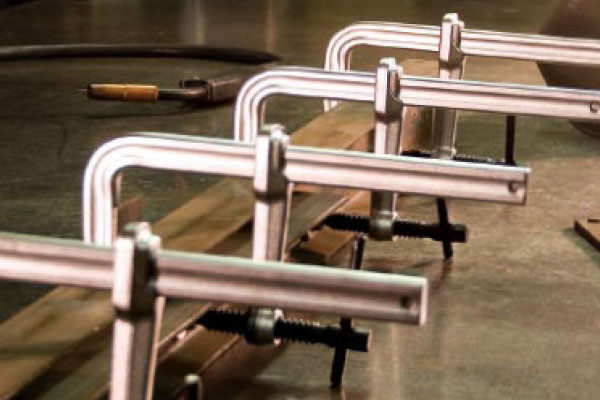
What Do the 2025 Tariffs Mean for Industrial Users of Workholding and Striking Tools?
If your business relies heavily on durable and dependable workholding and striking tools—such as vises, clamps, sledges, and hammers—you’ve likely already heard about the new tariffs impacting the industry. You’re not alone if these developments raise concerns or create uncertainty about operational costs and product availability.
These tariffs, intended to encourage domestic sourcing, could substantially impact costs for companies dependent on imported materials or components for their tools. Understanding these changes and proactively adapting is crucial.
We’re here to clarify the potential impacts for your business and share practical strategies to ensure resilience amid shifting economic and market conditions.
HOW TARIFFS MAY AFFECT INDUSTRIAL USERS OF WORKHOLDING & STRIKING TOOLS
Here's what your operations might experience:

RISING TOOL COSTS
Increased tariffs can elevate prices of critical tools such as vises, clamps, sledges, and industrial-grade hammers, affecting your operational budgets.

SUPPLY CHAIN COMPLICATIONS
Tariffs can complicate the sourcing of tool components, causing delays in product availability and increased complexity in procurement.

IMPACT ON COMPETITIVENESS
Higher tool costs might require price adjustments, affecting your ability to competitively price services or products.

ECONOMIC RIPPLE EFFECTS
Global trade reactions could trigger additional tariffs, affecting export potential and increasing economic uncertainty.
PRACTICAL STEPS TO MAINTAIN RESILIENCE
Adopting these strategies can help mitigate tariff impacts:
- Strategic Inventory Management Maintain sufficient stock of essential workholding and striking tools to safeguard against disruptions and sudden price hikes.
- Explore Domestic Sourcing Strengthen your supply chain by building partnerships with domestic manufacturers to mitigate risks associated with international tariff fluctuations.
- Cost Optimization Evaluate your operational costs rigorously, renegotiate contracts for favorable terms, and streamline processes.
- Extend Tool Lifespan Maximize the life of existing tools through consistent preventive maintenance and timely repairs.
- Transparent Pricing Communication Clearly communicate any necessary pricing adjustments to your customers, underscoring continued value and reliability.
- Leverage Promotions and Financing Options Take advantage of special pricing programs and promotions from WILTON to invest in high-quality, durable tools strategically.
- Engage in Industry Networks Collaborate with industry associations and networks to stay informed, share best practices, and leverage collective negotiation power.
LONG-TERM OPPORTUNITIES FOR YOUR BUSINESS
Despite immediate challenges, tariffs can yield longer-term opportunities:

INCREASED DEMAND FOR DURABLE DOMESTIC TOOLS
Higher costs on imported products could stimulate demand for domestically produced workholding and striking tools.

COMPETITIVE ADVANTAGE THROUGH DOMESTIC SOURCING
Businesses prioritizing domestic products may benefit from reduced costs and enhanced reliability.

ENHANCED MARKETABILITY OF DOMESTIC TOOLS
Consumer and industrial preference for domestically manufactured products presents opportunities to leverage your commitment to quality and reliability.

UTILIZE GOVERNMENT INCENTIVES
Capitalize on available federal support and incentives designed to enhance U.S. manufacturing competitiveness.
WILTON Remains Dedicated to Providing Reliable, High-Quality Tools
Our team is available to support your business as you navigate these changes. Connect with us to explore product solutions, financing opportunities, and strategic approaches to managing tariff impacts effectively.